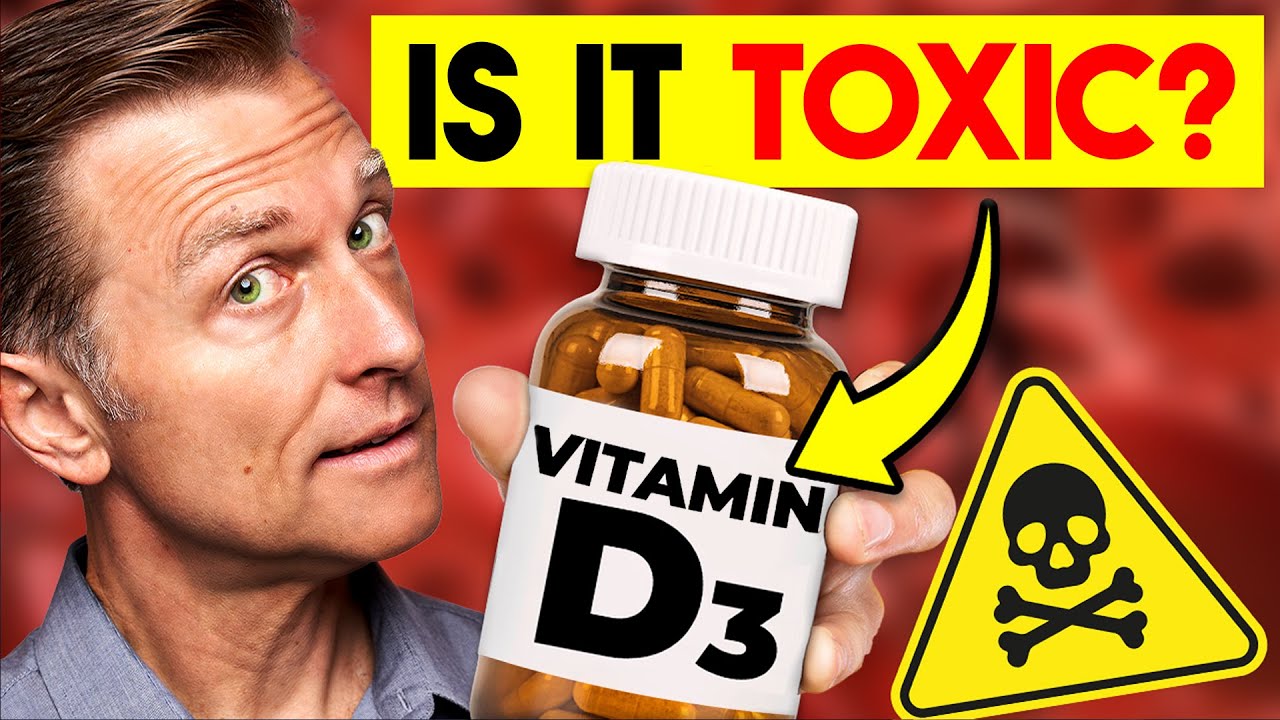What if managing autoimmune conditions came down to one overlooked nutrient—vitamin D? That’s exactly what Dr. Cicero Coimbra, a neurologist and creator of the COMRE Protocol, has explored for over two decades. His research shows that carefully monitored high doses of vitamin D3 may help bring autoimmune diseases under control and improve patients’ lives.
As a nutritionist and culinary expert, I’ve seen firsthand how nutrients can powerfully influence health. Vitamin D3 is emerging as a key player in immune balance, making this conversation especially relevant for people facing autoimmune challenges.

How It Started: A Surprising Patient Case
Over 25 years ago, Dr. Coimbra treated a man with Parkinson’s disease. He knew vitamin D could support brain health, so he prescribed 10,000 IU of vitamin D3 daily. The same patient also had vitiligo, a skin disorder caused by autoimmunity. Within weeks, the white patches began to fade—despite no other treatment. This unexpected result pushed Dr. Coimbra to explore vitamin D’s potential beyond the nervous system.
That one case changed the course of his career.
Vitamin D and the Immune System: What Most People Miss
Most doctors learn that vitamin D supports bone health by helping the body absorb calcium. But research since the 1980s has shown that vitamin D receptors exist in nearly every type of cell—including immune and brain cells. That means vitamin D has a much broader role than once believed.
For people with autoimmune disorders like multiple sclerosis (MS), lupus, or Hashimoto’s thyroiditis, vitamin D may help regulate overactive immune responses. Dr. Coimbra’s clinical work focuses on this very connection.
Why Some People Need Much More Vitamin D
Many people in the U.S. are vitamin D deficient due to indoor lifestyles and limited sun exposure. But for those with autoimmune diseases, the problem may go even deeper. Genetic differences—called polymorphisms—can block the body from properly using vitamin D. This can make standard supplements (1,000–2,000 IU/day) ineffective.
That’s why Dr. Coimbra adjusts doses based on weight and metabolic response. His average recommendation is 1,000 IU per kilogram of body weight. For example, someone who weighs 185 pounds (about 84 kg) might need 80,000 IU per day under medical supervision.

How to Avoid Vitamin D Toxicity
Using high doses of vitamin D safely requires a plan. Too much vitamin D can raise calcium levels in the blood and cause kidney issues. To lower this risk, Dr. Coimbra has patients reduce dairy intake, limiting dietary calcium.
He also emphasizes magnesium. Magnesium helps vitamin D do its job and prevents calcium buildup in soft tissues. Without enough magnesium, the body may become resistant to vitamin D—meaning even high doses won’t work effectively.
Rapid Correction: When Time Matters
Some situations call for fast action. Patients undergoing surgery or facing urgent immune issues may not have time to wait for vitamin D levels to rise gradually. In these cases, Dr. Coimbra sometimes gives a one-time dose of 600,000 IU. This kick-starts the process and is followed by daily maintenance dosing.
Again, this approach must be guided by a doctor familiar with high-dose protocols and includes regular blood tests to track calcium and kidney function.

Environmental Factors: The Aluminum Connection
Dr. Coimbra also raises concerns about aluminum exposure, particularly from vaccines. Aluminum can stay in the body and enter the brain, where it may trigger immune reactions. Some research has found aluminum particles in brain samples from people with autism, raising questions about long-term effects.
In practice, he has seen improvements in mood and behavior in some children and teens after detoxing aluminum using silica. Silica binds to aluminum and helps the body remove it through the kidneys.
While the research is still developing, the idea that environmental toxins may contribute to autoimmune and neurological issues is gaining traction.
Real Stories, Real Change
Dr. Coimbra has seen many patients regain normal lives after adjusting their vitamin D levels and removing excess calcium. In some cases, young patients struggling with depression or autism have also improved after addressing both nutrient deficiencies and aluminum toxicity.
One teenage girl, deeply depressed since early childhood, reported major improvements after a year of targeted support. Her psychiatrist began reducing her medications—something the family hadn’t thought possible.
These are personal stories, not general advice. But they highlight the potential power of treating root causes instead of just symptoms.
What You Can Do Today
While high-dose vitamin D therapy must be supervised by a trained doctor, you can still take smart steps to improve your own levels and support immune function naturally:
1. Test Your Vitamin D Levels
Ask for a 25-hydroxy vitamin D test. Optimal levels for immune health are often between 50 and 80 ng/mL.
2. Get Safe Sunlight
Spend 15–30 minutes in direct midday sun a few times a week without sunscreen (when safe). This helps your body make vitamin D naturally.
3. Eat Smart
Include vitamin D-rich foods like wild-caught salmon, egg yolks, and fortified mushrooms. Combine these with magnesium-rich foods such as leafy greens, pumpkin seeds, avocados, and dark chocolate.
4. Consider Supplements Wisely
For general health, many adults benefit from 2,000–5,000 IU of vitamin D3 daily—especially during the winter or when indoor-bound. Always pair with magnesium.
5. Avoid Self-Medicating
High doses of vitamin D can be dangerous without medical oversight. If you have an autoimmune disease, work with a specialist trained in vitamin D protocols.
Vitamin D is more than just a vitamin—it’s a hormone-like compound that plays a critical role in immune balance, inflammation, and even mood. Thanks to researchers like Dr. Coimbra, we now know that optimizing vitamin D levels may be a powerful strategy for managing autoimmune disease.

The key is personalization. With the right guidance, a safe and science-based approach to vitamin D can offer real hope for those seeking alternatives to traditional autoimmune treatments.
Ready to take control of your immune health? Explore our articles on nutrient therapy and functional eating, or connect with a practitioner who understands how nutrition and lifestyle can transform your well-being from the inside out.





